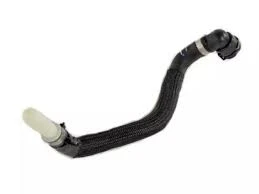Flexible Hose Solutions for Fuel Gas Transportation and Safety Standards
Dec . 05, 2024 17:10 Back to list
Flexible Hose Solutions for Fuel Gas Transportation and Safety Standards
Understanding Fuel Gas Hoses Essential Components for Safe and Efficient Fuel Transportation
Fuel gas hoses are critical components in various industries, particularly in applications involving the transportation of gases, such as natural gas, propane, and butane. These hoses are designed to safely convey fuel gas from one location to another, ensuring that it remains contained under different environmental conditions and pressures. With a growing demand for reliable and efficient energy transport solutions, understanding the types, applications, and safety measures associated with fuel gas hoses becomes increasingly important.
Types of Fuel Gas Hoses
Fuel gas hoses come in a variety of types and materials, each designed to meet specific requirements. Common materials used for these hoses include rubber, PVC (polyvinyl chloride), and thermoplastic elastomers. The choice of material significantly affects the hose's flexibility, durability, and resistance to chemicals and heat.
1. Rubber Hoses These are widely used due to their excellent flexibility and resistance to abrasion. Moreover, rubber hoses can handle high-pressure applications, which makes them suitable for industrial use, such as in gas distribution networks and refineries.
2. PVC Hoses Known for their lightweight nature, PVC hoses are often employed in residential applications, such as connecting gas tanks to appliances. They are resistant to corrosion and generally more affordable than rubber hoses, making them a popular choice for less demanding applications.
3. Thermoplastic Elastomer Hoses These hoses combine the properties of rubber and plastic, offering flexibility, durability, and chemical resistance. They are often used in commercial applications where the hose needs to withstand fluctuating temperatures and pressures.
Applications of Fuel Gas Hoses
Fuel gas hoses are utilized in numerous applications across different sectors. Some of the most common include
- Residential Use Many households rely on propane tanks for heating and cooking. Fuel gas hoses connect these tanks to various appliances, ensuring the safe delivery of gas.
- Commercial Settings Restaurants and food trucks often use fuel gas hoses to power grills and ovens
. The hoses must be compliant with safety standards to prevent leaks, which could lead to dangerous situations.fuel gas hose

- Industrial Applications Industries utilizing gas for heating processes, such as manufacturing and chemical plants, require robust fuel gas hoses capable of high-pressure operations. These hoses must also adhere to strict safety protocols to minimize the risk of gas leaks and ensure worker safety.
Safety Measures
Safety should always be a top priority when it comes to fuel gas hoses. Proper installation, maintenance, and inspection play vital roles in preventing leaks and ensuring efficient operation. Here are some key safety measures to follow
1. Regular Inspections Fuel gas hoses should be inspected periodically for any signs of wear, damage, or deterioration. Cracks, bulges, or discoloration can indicate that a hose needs to be replaced.
2. Proper Installation Hoses must be installed according to manufacturer specifications. This includes ensuring that the correct fittings and connectors are used to prevent leaks at junctions.
3. Adequate Support Hoses should not be subjected to excessive tension or bending. Using appropriate supports and keeping them away from sharp edges or chemicals can prolong their lifespan.
4. Leak Detection Utilizing leak detection services or devices is essential, especially in industrial settings. Regular leak tests can help identify potential issues before they escalate into hazardous situations.
5. Compliance with Standards Always ensure that the fuel gas hoses meet relevant safety standards and regulations, such as those set by ASTM (American Society for Testing and Materials) or NFPA (National Fire Protection Association).
Conclusion
Fuel gas hoses are indispensable for safe and efficient fuel transportation in various applications, from residential settings to large industrial complexes. By choosing the right type of hose and adhering to strict safety protocols, businesses and homeowners alike can ensure that their fuel gas supply is managed effectively. As the demand for energy continues to grow, understanding and properly handling fuel gas hoses will remain crucial for the safe operation of gas systems.
